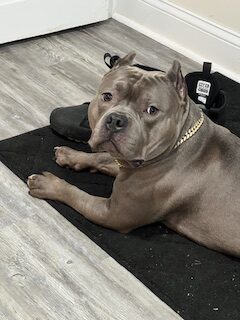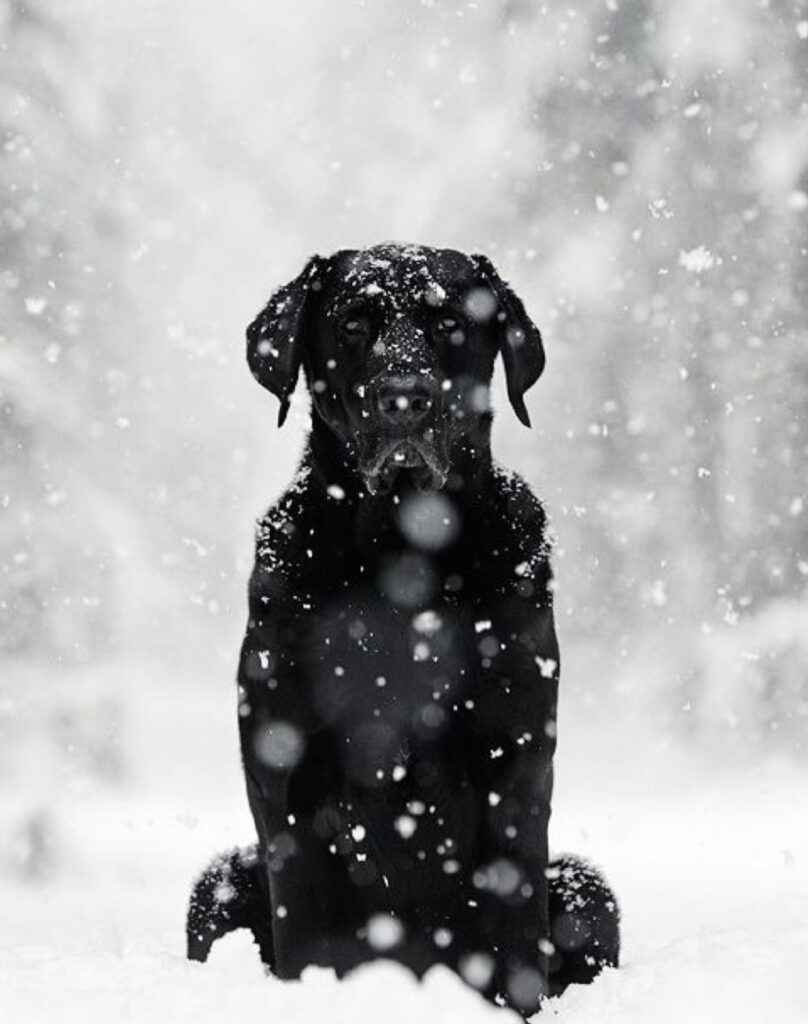Dogs have been trusted companions for centuries when it comes to securing your home and family. However, not all dogs are created equal in their ability to provide protection. While some breeds excel as vigilant watchdogs, others are more suited to the role of guard dog. Understanding the differences between these two roles and knowing which breeds are best for each is crucial for choosing the right protector for your needs.
What is a Watchdog?
A watchdog’s primary role is to alert their owner to potential intruders or unusual activity. Watchdogs rely on their keen senses of sight, hearing, and smell to detect anything
unusual. They are typically known for their barking, which serves as a deterrent by signaling to the owner and possibly scaring off intruders.
Key Traits of a Good Watchdog:
- Alertness: A good watchdog is highly alert and responsive to new environmental situations. Environment: Watchdogs are often barkers, using their voices to alert their owners to potential threats.
- Intelligent: They must be able to discern between normal and suspicious activities.
- Size and Strength: While watchdogs can be of any size, their primary function is to alert, not necessarily to confront.

What is a Guard Dog?
On the other hand, a guard dog is trained to alert con, front, and deter threats physically. Guard dogs are often larger, more intimidating breeds with a natural instinct to protect their territory and family. They require rigorous training to distinguish between genuine threats and benign situations.
Key Traits of a Good Guard Dog:
- Bravery: A good guard dog is fearless in the face of danger.
- Loyalty: Guard dogs form strong bonds with their family and are highly protective.
- Physical Strength: These dogs are typically large and powerful, capable of taking down intruders if necessary.
- Discipline: Guard dogs require extensive training to respond appropriately to threats.
Comparative Analysis: Watchdog vs. Guard Dog
1. Temperament
- Watchdog: Typically, watchdogs are more alert and vocal but may need more aggression or physicality to confront a threat.
- Guard Dog: Guard dogs have a more severe temperament, often characterized by loyalty, courage, and a protective instinct.
2. Training Requirements
- Watchdog: Training a watchdog often focuses on reinforcing alertness and controlled barking. Basic obedience training is usually sufficient.
- Guard Dog: Guard dogs require rigorous and ongoing training to respond appropriately to threats. This includes not only obedience training but also advanced protection work.
3. Suitability for Families
- Watchdog: Many watchdog breeds are excellent with families, including children,as their role does not involve aggression.
- Guard Dog: Some guard dogs can be excellent family pets, but their protective nature may require more supervision and training around strangers and children.
4. Living EnvironEnvironmentog: Watchdogs are often more adaptable to smaller living environments like apartments as long as they get enough exercise.
- Guard Dog: Due to their size and energy levels, guard dogs usually require more space, making them better suited for homes with yards.
Best Watchdog Breeds
1. Chihuahua
- Strengths: Despite their small size, Chihuahuas are highly alert and vocal, making them excellent watchdogs. They are naturally suspicious of strangers and quick to sound the alarm.
- Weaknesses: Their size makes them unsuitable for physical protection, and their barking can sometimes become excessive if not correctly managed.
2. Dachshund
- Strengths: Dachshunds are known for their keen sense of smell and hearing. They are naturally wary of strangers and will bark to alert their owners.
- Weaknesses: Like the Chihuahua, their small size limits their ability to provide physical deterrence. They can also be stubborn, making training a challenge.
3. Miniature Schnauzer
- Strengths: The Miniature Schnauzer is an alert and intelligent breed with a natural protective instinct. They are quick to bark at unfamiliar sights and sounds.
- Weaknesses: While they are effective watchdogs, they need more physical presence to act as guard dogs. Their barking can also become problematic if not controlled.
4. Shih Tzu
- Strengths: Shih Tzus are surprisingly alert and vigilant for their size. They are quick to notify their owners of any unusual activity.
- Weaknesses: Although they are good at alerting, their small size means they cannot physically confront an intruder.
5. Terriers (Various Breeds)
- Strengths: Terriers like the Jack Russell or Yorkshire Terrier are known for their high energy and alertness. They are quick to sound the alarm and are tenacious in their alerting behavior.
- Weaknesses: Like other small breeds, they lack the physical ability to protect, and their high energy levels can sometimes lead to excessive barking.
Best Guard Dog Breeds
1. German Shepherd
- Strengths: German Shepherds are one of the most popular guard dog breeds. They are known for their intelligence, strength, and loyalty. They are highly trainable and excel in protection work.
- Weaknesses: They require significant exercise and mental stimulation, and without proper training, they can become overprotective or aggressive.
2. Rottweiler
- Strengths: Rottweilers are powerful, confident, and loyal. They are naturally protective of their family and territory and can intimidate potential intruders.
- Weaknesses: Rottweilers need consistent training and socialization from a young age to prevent aggressive behavior. They can be challenging for first-time dog owners.
3. Doberman Pinscher
- Strengths: Dobermans are known for their loyalty, intelligence, and speed. They are naturally protective and are often used in security roles.
- Weaknesses: They require a lot of exercise and mental stimulation. Without proper training, they can become overly aggressive or anxious.
4. Bullmastiff
- Strengths: Bullmastiffs are large, powerful dogs originally bred to guard estates. They are naturally protective yet typically calm and gentle with their families.
- Weaknesses: Their size requires a lot of space and can be challenging to manage without proper training. They also have a relatively short lifespan compared to other breeds.
5. Cane Corso
- Strengths: The Cane Corso is a large, muscular breed with a strong protective instinct. It is known for its loyalty and effectiveness as a guard dog.
- Weaknesses: Cane Corsos require extensive socialization and training. Due to their size and strength, they are not recommended for inexperienced dog owners.
Comparing Watchdog and Guard Dog Breeds
1. Alertness
- Watchdogs: Breeds like the Chihuahua and Miniature Schnauzer excel in alerting their owners to potential threats due to their high alertness and tendency to bark at unfamiliar stimuli.
- Guard Dogs: German Shepherds and Rottweilers are also highly alert, but their alertness is coupled with the ability to act, making them effective in both detection and deterrence.
2. Vocalization
- Watchdogs: Many watchdog breeds, such as the Dachshund and Terrier, are known for their vocal nature, making them excellent for alerting but potentially challenging in environments where excessive barking is an issue.
- Guard Dogs: Guard dogs tend to bark less frequently but more purposefully. Breeds like the Bullmastiff are typically quieter but bark when they sense a real threat.
3. Physical Deterrence
- Watchdogs: Watchdogs generally lack the physical presence to deter intruders physically. Their role is more about alerting rather than confronting.
- Guard Dogs: Guard dogs like the Doberman Pinscher and Cane Corso have the physical strength and presence to confront and deter intruders, making them more suitable for situations where a physical deterrent is needed.
4. Ease of Training
- Watchdogs: Smaller breeds like the Shih Tzu and Chihuahua may be more challenging to train due to their independent nature, but they require less intensive training than guard dogs.
- Guard Dogs: Breeds like the German Shepherd are highly trainable, but their training needs are more rigorous, especially regarding protection work. Consistent training is essential for these dogs to distinguish between genuine and non-threatening threats.
Choosing the Right Dog for Your Needs
When deciding between a watchdog and a guard dog, consider the following factors:
- Purpose: A watchdog may be sufficient if you need a dog primarily to alert you to potential dangers. However, a guard dog is the better choice if you need a dog that can also physically protect your property and family. The primary purpose of a watchdog is to serve as an early warning system, alerting you to any unusual activity or potential intruders. On the other hand, a guard dog not only alerts you but can physically intervene if necessary, providing a more comprehensive level of protection.
- Living Situation: Your living environment plays a significant role in determining the best breed for your needs. If you live in an apartment or a smaller home, a watchdog may be more suitable due to their adaptability to smaller spaces. Guard dogs, being typically larger and more active, generally require more space to thrive and may be
better suited for homes with a yard. - Family Dynamics: Consider the dynamics of your household, especially if you have children or frequent visitors. While both watchdogs and guard dogs can be excellent family pets, guard dogs often require more careful management and training to ensure they are well-socialized and can differentiate between a friendly visitor and a potential threat.
- Experience Level: A watchdog breed may be easier to manage if you are a first-time dog owner. Guard dogs often require a more experienced hand, as they need consistent training and socialization to prevent them from becoming overprotective or aggressive.
- Time Commitment: Training and socializing any dog requires a significant time commitment, especially for guard dogs. A guard dog can be an excellent protector if you have the time and dedication to invest in rigorous training. However, a less demanding watchdog breed might be a better fit if your time is limited.
- Final Thoughts
Choosing between a watchdog and a guard dog depends on your needs, living situation, and dog experience. Both types of dogs offer unique advantages, and with the proper training and care, they can be invaluable companions and protectors. By understanding the strengths and weaknesses of each breed, you can make an informed decision that ensures the safety and well-being of your family and home. - Conclusion
Whether you opt for a vigilant watchdog or a protective guard dog, it’s essential to recognize the importance of proper training, socialization, and care. A well-trained dog, regardless of its role, will provide security and be a loyal and loving member of your family. Take the time to evaluate your needs, research breeds, and consider your ability to meet the dog’s exercise, training, and companionship requirements. With the right approach, you can find the perfect canine protector to enhance your home’s security and bring peace of mind.



